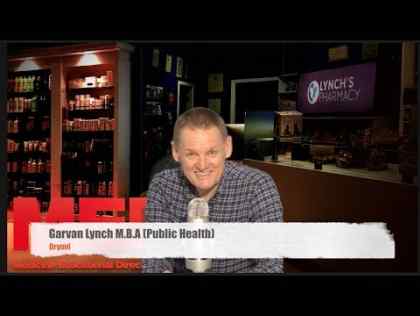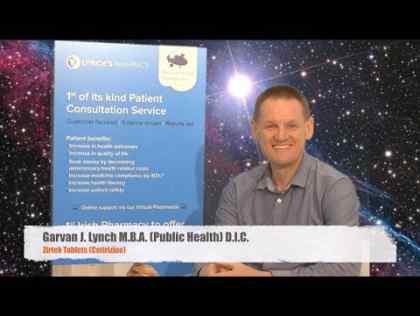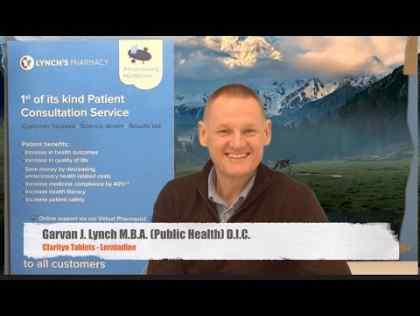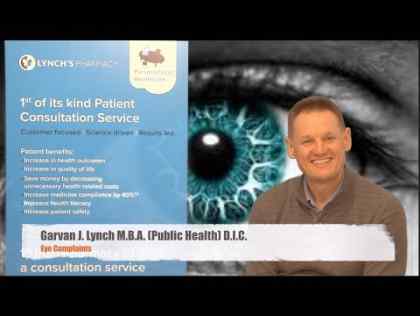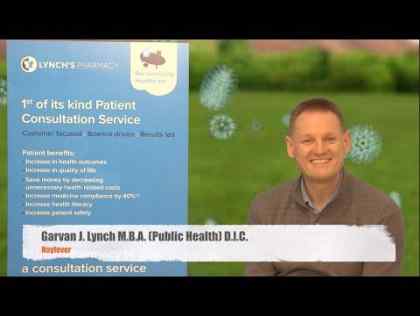
What is it?
- Allergies occur when your immune system reacts to a foreign substance such as pollen, bee venom or pet dander.
- The immune system produces proteins known as IgE antibodies. These antibodies protect you from unwanted invaders that could make you sick or cause an infection. When you have allergies, your immune system makes antibodies that identify your particular allergen as something harmful, even though it isn't. This triggers the release of histamines and other substances that cause allergy symptoms.
- Allergies can cause symptoms that involve your skin, sinuses, airways or digestive system. The severity of allergies varies from person to person and can range from minor irritation to anaphylaxis — a potentially life-threatening emergency.
Symptoms
Allergy symptoms depend on your particular allergy, and can involve the airways, sinuses and nasal passages, skin and digestive system. In most cases, an allergic reaction is a nuisance that causes irritating but minor symptoms. Severe allergic reactions can be more dangerous because they're likely to involve several of the body's organ systems. In some severe cases, allergies can trigger a life-threatening reaction in your body known as anaphylaxis.
Hay fever, also called allergic rhinitis, may cause:
- Congestion
- Itchy, runny nose
- Itchy, watery or swollen eyes (conjunctivitis)
Atopic dermatitis, an allergic skin reaction also called eczema, may cause:
- Itchy skin
- Red skin
- Flaking or peeling skin
A food allergy may cause:
- Tingling mouth
- Swelling of the lips, tongue, face or throat
- Hives
- Anaphylaxis
An insect sting allergy may cause:
- A large area of swelling (edema) at the sting site
- Itching or hives all over your body
- Cough, chest tightness, wheezing or shortness of breath
- Anaphylaxis
A drug allergy may cause:
- Hives
- Itchy skin
- Rash
- Facial swelling
- Wheezing
- Anaphylaxis
Anaphylaxis
Some types of allergies, including allergies to foods and insect stings, have the potential to trigger a severe reaction known as anaphylaxis. A life-threatening medical emergency, this reaction involves several of the body's organ systems and can cause you to go into shock. Signs and symptoms of anaphylaxis include:
- Loss of consciousness
- Lightheadedness
- Severe shortness of breath
- A rapid, weak pulse
- Skin rash
- Nausea and vomiting
- Swelling airways, which can block breathing
Causes
An allergy starts when the immune system mistakes a normally harmless substance for a dangerous invader. The immune system then produces antibodies that are always on the alert for your particular allergen. When you're exposed to the allergen again in the future, these antibodies release a number of immune system chemicals, such as histamine, that cause allergy symptoms.
Common allergy triggers include:
- Airborne allergens, such as pollen, animal dander, dust mites and mold
- Certain foods, particularly peanuts, tree nuts, wheat, soy, fish, shellfish, eggs and milk
- Insect stings, such as bee stings or wasp stings
- Medications, particularly penicillin or penicillin-based antibiotics
- Latex or other substances you touch, which can cause allergic skin reactions
Risk factors
You may be at increased risk of developing an allergy if you:
- Have a family history of asthma or allergies. You're at increased risk of allergies if you have family members with asthma or allergies such as hay fever, hives or eczema.
- Are a child. Although you can become allergic to something at any age, children are more likely to develop an allergy than are adults. Children sometimes outgrow allergic conditions as they get older. However, it's not uncommon for allergies to go away and then come back sometime in the future.
- Have asthma or an allergic condition. Having asthma increases your risk for developing an allergy. Also, having one type of allergic condition makes you more likely to be allergic to something else.
Complications
Having an allergy increases your risk of certain other medical problems, including:
- Anaphylaxis. If you have severe allergies, you're at increased risk of this serious allergy-induced reaction. Anaphylaxis is most commonly associated with food allergy and allergy to insect venom.
- Another allergy. Having one type of allergy also increases your risk of becoming allergic to something else.
- Asthma. If you have an allergy, you're more likely to have asthma — an immune system reaction that affects the airways and breathing. In many cases, asthma is triggered by exposure to an allergen in the environment (allergy-induced asthma).
- Atopic dermatitis (eczema), sinusitis, and infections of the ears or lungs. Your risk of getting these conditions is higher if you have hay fever, a pet allergy or a mold allergy.
- Fungal infection of your sinuses or your lungs. You're at increased risk of getting these conditions, known as allergic fungal sinusitis and allergic bronchopulmonary aspergillosis, if you're allergic to mold.
Diagnosis
To evaluate whether you have an allergy, your doctor may:
- Ask detailed questions about signs and symptoms
- Perform a physical exam
- Have you keep a detailed diary of symptoms and possible triggers
If you have a food allergy, your doctor may:
- Ask you to keep a detailed diary of the foods you eat
- Have you eliminate a food from your diet (elimination diet) - and then have you eat the food in question again to see if it causes a reaction
Your doctor may also recommend one or both of the following tests:
Skin test. In this test, your skin is pricked and exposed to small amounts of the proteins found in your potential allergen. If you're allergic, you develop a raised bump (hive) at the test location on your skin. Allergy specialists usually are best equipped to perform and interpret allergy skin tests.
Blood test. A blood test (sometimes called the radioallergosorbent, or RAST, test) can measure your immune system's response to a specific allergen by measuring the amount of allergy-causing antibodies in your bloodstream, known as immunoglobulin E (IgE) antibodies. A blood sample is sent to a medical laboratory, where it can be tested for evidence of sensitivity to possible allergens.
Treatments and drugs
Allergy treatments include:
- Allergen avoidance. Your doctor will help you take steps to identify and avoid your allergy triggers. This is generally the most important step in preventing allergic reactions and reducing symptoms.
- Medications to reduce symptoms. Allergy medications can help reduce your immune system reaction and ease symptoms. The drugs you use depend on the type of allergy you have. They can include over-the-counter or prescription medications in the form of oral medications, nasal sprays or eyedrops. Some common allergy medications include corticosteroids, antihistamines, decongestants, cromolyn sodium and leukotriene modifiers.
- Immunotherapy. For severe allergies or allergies not relieved by other treatment, your doctor may recommend allergy shots (immunotherapy). This treatment involves a series of injections of purified allergen extracts, usually given over a period of a few years.
- Emergency epinephrine. If you have a severe allergy, your doctor may give you an emergency epinephrine shot to carry with you at all times. Given for severe allergic reactions, an epinephrine shot (EpiPen) can reduce symptoms until you get emergency treatment.
Lifestyle remedies
Some allergy symptoms improve with home treatment.
- Sinus congestion and hay fever symptoms often improve with nasal lavage — rinsing out the sinuses with a saline solution. You can use a "neti pot" or a specially designed bulb syringe to flush out thickened mucus and irritants from your nose.
- Insect sting symptoms may improve when you put a paste of baking soda and water, aloe vera or calendula to the sting site.
- Household airborne allergy symptoms, such as those caused by dust mites or pet dander, may improve by taking steps to reduce your exposure to allergens. Steps include frequently washing bedding and stuffed toys in hot water, maintaining low humidity, regularly using a vacuum with a fine filter such as a high-efficiency particulate air (HEPA) filter, and replacing carpeting with hard flooring.
- Mold allergy symptoms may be alleviated by avoiding outdoor work in damp weather, wearing a dust mask while working outdoors, and keeping your windows closed at night.
Alternative medicine
There's little scientific research that shows alternative therapies work for treating allergies, but a number of people claim they help alleviate symptoms.
- Herbal remedies and supplements include butterbur, cat's claw, choline, goldenseal, stinging nettle, belladonna and bromelain.
- Alternative therapies include probiotics, acupuncture and hypnosis.
Prevention
Preventing allergies depends on the type of allergy you have. General measures include the following:
- Avoid known triggers. Even if you get treatment for your allergy symptoms, you still need to do your best to avoid your triggers. Common triggers include airborne allergens outdoors, at home or at work, and certain foods, insects or medications. Some allergic reactions are triggered or worsened by temperature extremes or emotional stress.
- Keep a diary. When trying to identify exactly what causes or worsens your allergic symptoms, try to track all of your activities, note when symptoms occur, and write down what seems to help. This may help you and your doctor identify triggers and the best steps to prevent and treat them.
- Wear a medical alert bracelet if you've ever had a severe allergic reaction. A medical alert bracelet (or necklace) lets others know that you have a serious allergy in case you have a reaction and you're unable to communicate.
References:
http://en.wikipedia.org/wiki/Allergy
http://www.webmd.com/allergies/default.htm
http://www.nhs.uk/conditions/Allergies/Pages/Introduction.aspx
http://www.nlm.nih.gov/medlineplus/allergy.html
http://www.mayoclinic.com/health/allergies/DS01118


